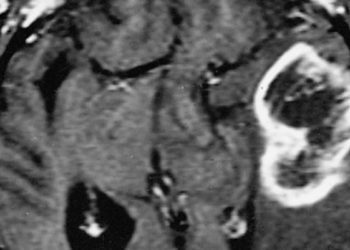Quick Take: Neoantigen vaccine generates intratumoral T cell responses in phase Ib glioblastoma trial
Neoantigens are derived from tumor-specific somatic mutations. As such, they are exempt from immune central tolerance mechanisms and can generate robust immune responses, making them an ideal target for personalized cancer vaccines. Personalized neoantigen vaccination has been previously tested in patients with high-risk melanoma, a cancer that usually harbors a high mutation load. However, the concept has not yet been tested in tumors with a relatively low mutational load, such as glioblastoma (GBM). In this phase I/Ib study, 8 patients with newly diagnosed glioblastoma were immunized with personalized neoantigen vaccines following surgical resection and conventional radiotherapy to assess safety and feasibility. Immune responses were also studied. Vaccines contained up to 20 immunizing neoantigen peptides selected based on whole exome and RNA sequencing of surgically resected GBM and human leukocyte antigen (HLA) class I binding predictions, as well as polyinosinic and polycytidylic acid (poly-ICLC). The median time from surgery to vaccination was 19.9 weeks (range 17.1 to 24.7 weeks), and 6 of 8 patients required dexamethasone therapy during vaccine priming. Five patients did not complete booster vaccinations due to disease progression. Researchers found that patients who did not receive dexamethasone during vaccine priming generated robust de novo tumor-specific immune responses against multiple predicted neoantigens, demonstrated using ex vivo enzyme-linked immunospot (ELISPOT) and ex vivo intracellular cytokine staining assays. Moreover, T-cell receptor (TCR) sequencing and multiplex immunofluorescence revealed that there was an increase in tumor T cell infiltration and tumor-specific TCR clonotypes in these patients. However, patients who required dexamethasone did not generate statistically significant immune responses. Ultimately, all patients died of progressive disease, indicating that vaccine-induced T cell responses did not produce a sufficient anti-tumor response to prevent disease progression. No dose limiting toxicities were observed. Overall, this study suggests that neoantigen vaccination is a feasible therapeutic strategy in tumors with a low mutational burden, and given the success in patients not treated with dexamethasone, future studies will evaluate neoantigen vaccination combined with immune checkpoint blockade for GBM.
Click to read the study in Nature
Image: PD
©2018 2 Minute Medicine, Inc. All rights reserved. No works may be reproduced without expressed written consent from 2 Minute Medicine, Inc. Inquire about licensing here. No article should be construed as medical advice and is not intended as such by the authors or by 2 Minute Medicine, Inc.








